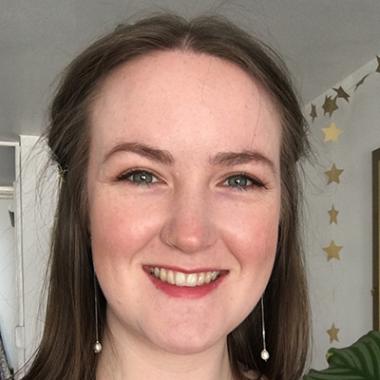
Psychology MSc – 2022
The teaching on the course has been really well organised and engaging. The lecturers are knowledgeable and approachable. I have particularly enjoyed the group dynamic in our cohort – everyone has their own perspective and our interactions have made learning so much richer.
Why did you choose the University of Westminster?
I chose Westminster as the course I was interested in seemed to be one of the most academically rigorous and I was interested in getting experience within a psychological setting, which this course offered.
Tell us about your course (what have you particularly enjoyed about the programme)?
The teaching on the course has been really well organised and engaging. The lecturers are knowledgeable and approachable. I have particularly enjoyed the group dynamic in our cohort – everyone has their own perspective and our interactions have made learning so much richer.
How have you found academic/lecturer support as part of your studies?
I was course rep this year and so have had a privileged view from both student and staff perspectives. I have seen staff being incredibly helpful and encouraging for students who need additional support. The student bonds have also been very strong, and the support for each other among our cohort has been significant. Personally, I have felt really well supported by the staff at Westminster, the lecturers are empathetic and understanding.
What would your advice be to someone considering studying at Westminster?
Enjoy it! Having the time to learn alongside other interested and interesting people is a wonderful opportunity. Having people to support you through the course is also really important because it is hard work – so bear that in mind!
Your thoughts
Thanks so much! I have loved it! And fully intend to continue enjoying it until September, when my course ends.
What was the application process for your placement?
I found my placement by looking for establishments offering appropriate experience near to where I live.
I had previously been in contact with the hospital where I am now completing my placement. I completed the hospital's application form and then was invited in for an interview. Once I'd been accepted as a volunteer, I filled out the University application form to ensure that the placement was approved by the University.
How has your course helped you with your work placement?
My placement was approved by the LAS placement team.
With the flexibility of my course, I’ve been able to choose creative modules as well as academic ones, which has taught me how to adapt my writing to various styles of text for different occasions.
Please provide examples of the type of work you've been undertaking on your placement?
- Engaging with people with neuro-disabilities
- Befriending patients
- Training with augmentative and alternative communication devices
- Engaging with patients in group activities
What have you learnt and what skills did you gain during your placement?
I have expanded my knowledge of neuro-disabilities, assisted communications, seen how multidisciplinary teams work, and learnt about the intricacies of treating a patient with such complex needs.
Being able to problem solve in the moment is also something I have learned in this environment. I need to understand how the ward and the hospital works, as well as know the patient's preferences in order to put their needs first and effectively problem solve.
My understanding of my own strengths and weaknesses have developed as I’ve found myself in new situations, facing new challenges. I’ve also been able to take charge of my own learning in this setting, furthering my knowledge with my own research beyond the hospital induction.
I think most importantly, developing a reflective practice has been a steep learning curve in recognising how to remove my own ego from a patient scenario and to focus on the outcome for them.
How do you plan to use your placement experience in your professional future?
I hope to pursue a doctorate in clinical psychology.